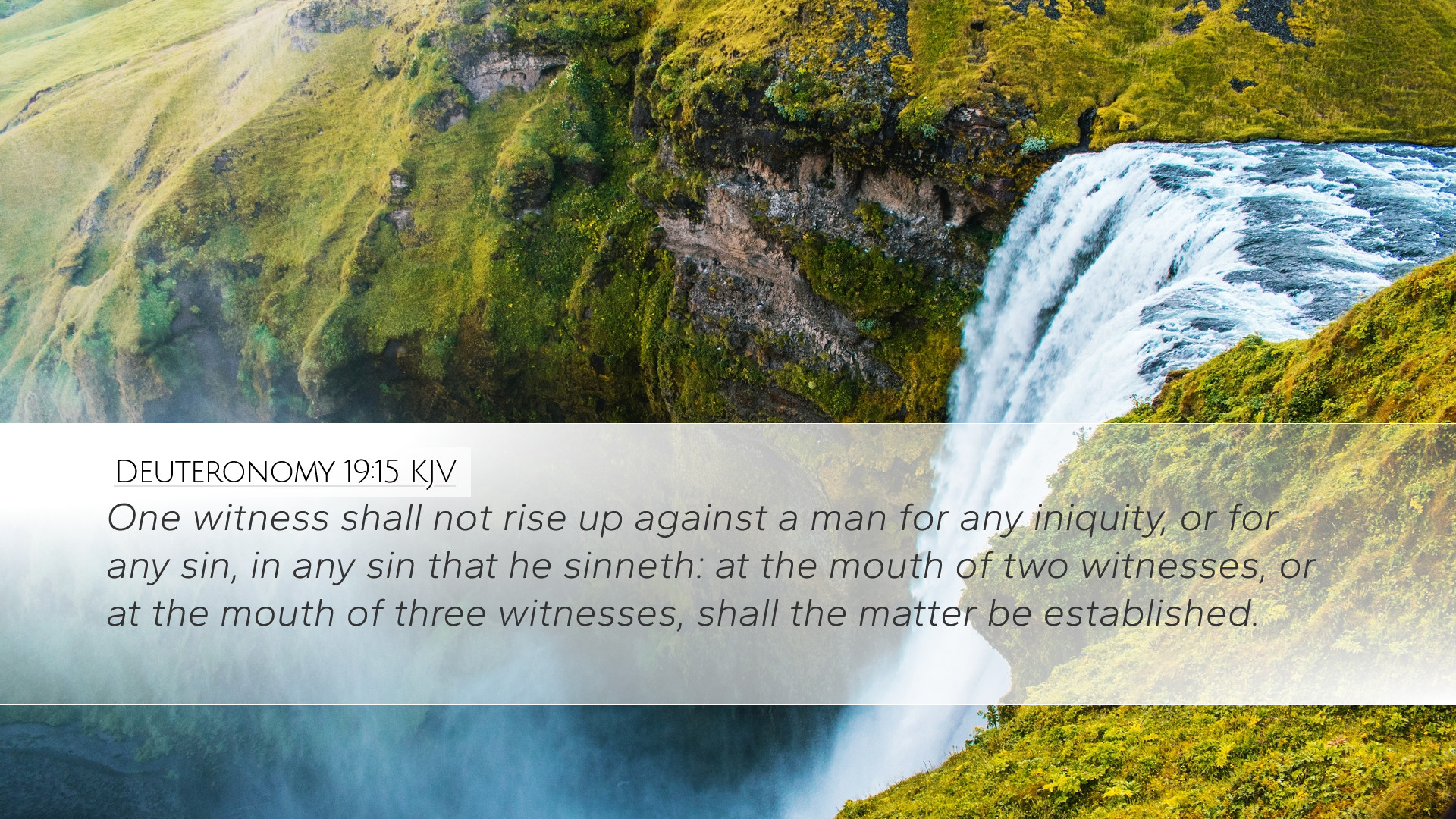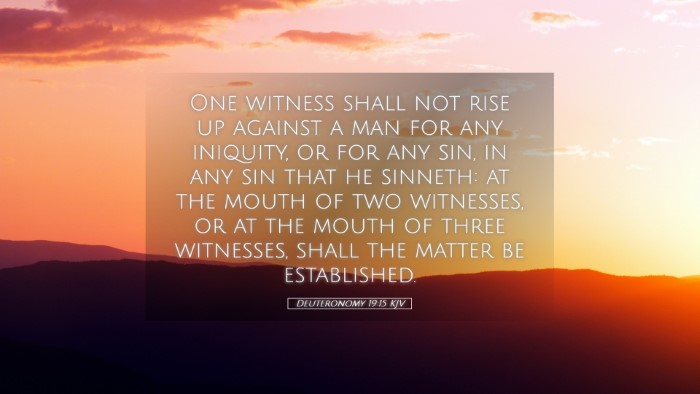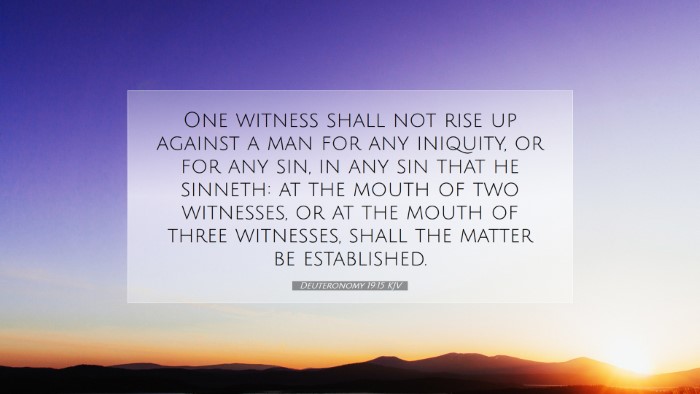Commentary on Deuteronomy 19:15
Verse Text: "One witness shall not rise against a man concerning any iniquity or any sin that he commits; by the mouth of two or three witnesses the matter shall be established."
Introduction
Deuteronomy 19:15 serves as a foundational verse in the legal and moral framework established in the Mosaic Law. It underscores the importance of corroborated testimony in judicial proceedings, aiming to ensure justice and minimize the risk of false accusations. This commentary synthesizes insights from several public domain commentaries, including those of Matthew Henry, Albert Barnes, and Adam Clarke, providing a comprehensive understanding of the verse’s implications for pastoral ministry, theological study, and scriptural interpretation.
Historical Context
The context of Deuteronomy, a reiteration of the law given to Israel, is set against the backdrop of the Israelites preparing to enter the Promised Land. Moses serves as the mediator of God's covenant, emphasizing compliance with divine statutes aimed at safeguarding communal integrity, morality, and justice. The establishment of legal protocols was critical in fostering a society governed by righteousness, not chaos.
Theological Significance
Theologically, this verse demonstrates God's commitment to justice and the ethical treatment of all individuals. By requiring multiple witnesses, it reflects God’s desire for thoroughness and accuracy in the administration of justice. This principle not only informs judicial processes but also has implications for accountability within the faith community.
Insights from Commentators
Matthew Henry
Matthew Henry emphasizes that this law demonstrates divine wisdom in protecting individuals from the dangers of hasty judgment. Without corroboration, a witness's testimony holds little weight, preventing the potential for tyranny or personal vendettas.
- False Accusation Prevention: Henry notes the law serves as a safeguard against slanderous accusations, ensuring that justice is based on credible testimony.
- Community Integrity: He illustrates how this law contributes to the preservation of community trust, as it encourages a culture where individuals refrain from taking accusations lightly.
Albert Barnes
Albert Barnes elaborates on the practical application of this mandate within ancient Israelite society. He argues that the requirement of two or three witnesses reflects a broader principle applicable beyond the Old Testament, advocating for evidence-based claims in all judicial matters.
- Judicial Fairness: Barnes insists that this measure is crucial for the fairness of legal proceedings, ensuring no person suffers unjustly due to a singular, potentially biased account.
- Applicability to Modern Courts: He draws parallels with contemporary judicial systems, encouraging synchronization of this biblical principle with modern-day legal practices.
Adam Clarke
Adam Clarke articulates the moral implications tied to the witnesses’ character and integrity. He stresses that the credibility of witnesses is paramount, and the law necessitates that those who testify are not only present but also possess a moral standing that honors the truth.
- Witness Responsibility: Clarke points out that the witness, in addition to presenting facts, carries the moral burden of ensuring their testimony aligns with divine truth.
- Moral Society: He posits that a society built on truth-telling promotes a sense of safety and security, aligning with God’s intent for His people.
Implications for Ministry
For pastors and ministry leaders, Deuteronomy 19:15 provides valuable insights into the ethical standards of witness and testimony within the church.
- Accountability in Leadership: Church leaders are called to model integrity and transparency, ensuring that any accountability processes reflect the principles laid out in Scripture.
- Community Trust: Building trust within the congregation requires a commitment to truth and verification, akin to the judicial standards invoked in this verse.
- Conflict Resolution: Implementing a practice of seeking multiple perspectives in conflict situations can foster reconciliation and unity among church members.
Conclusion
Deuteronomy 19:15 encapsulates God's design for justice through multiple witness requirements, safeguarding individuals and the community from falsehood. Drawing from the wisdom of revered commentators, this verse reminds contemporary readers of the enduring necessity of fairness and truth within personal, communal, and judicial spheres. As we navigate complex relationships and societal challenges, let us embrace the heart of God's law in promoting justice, integrity, and restoration.


